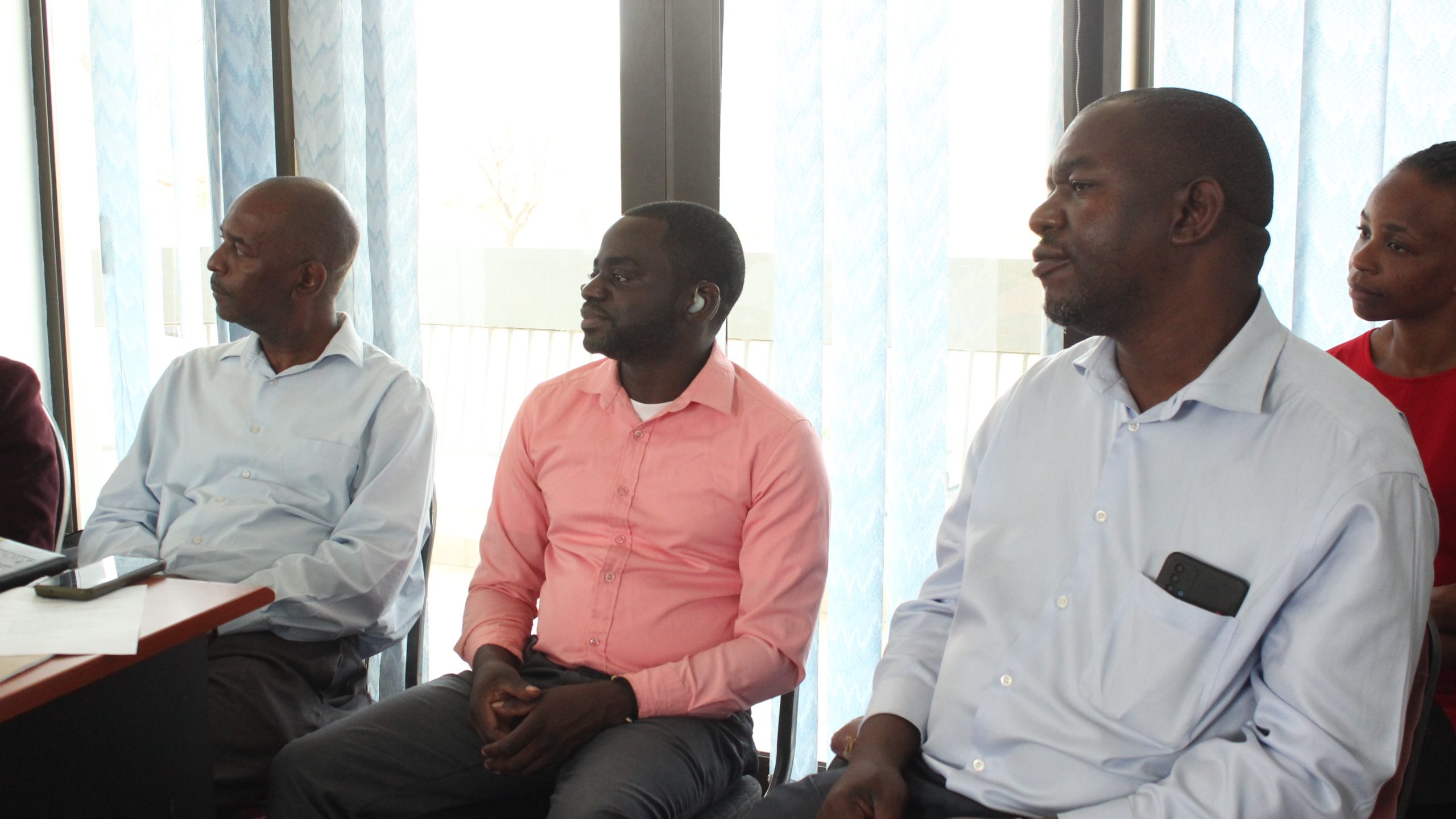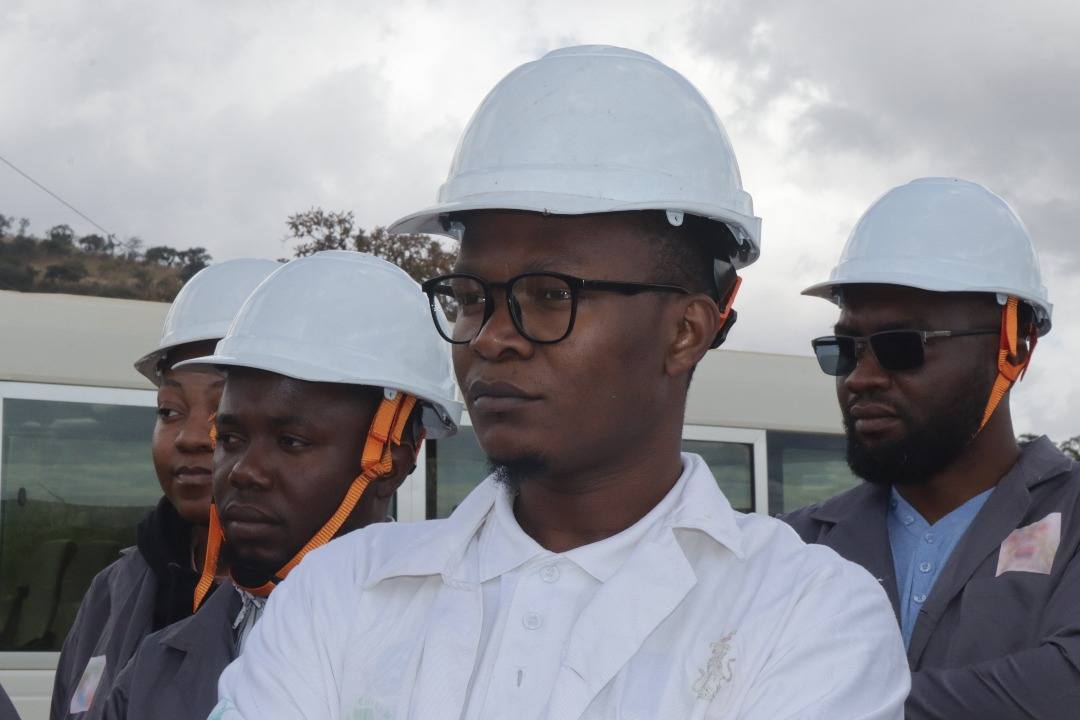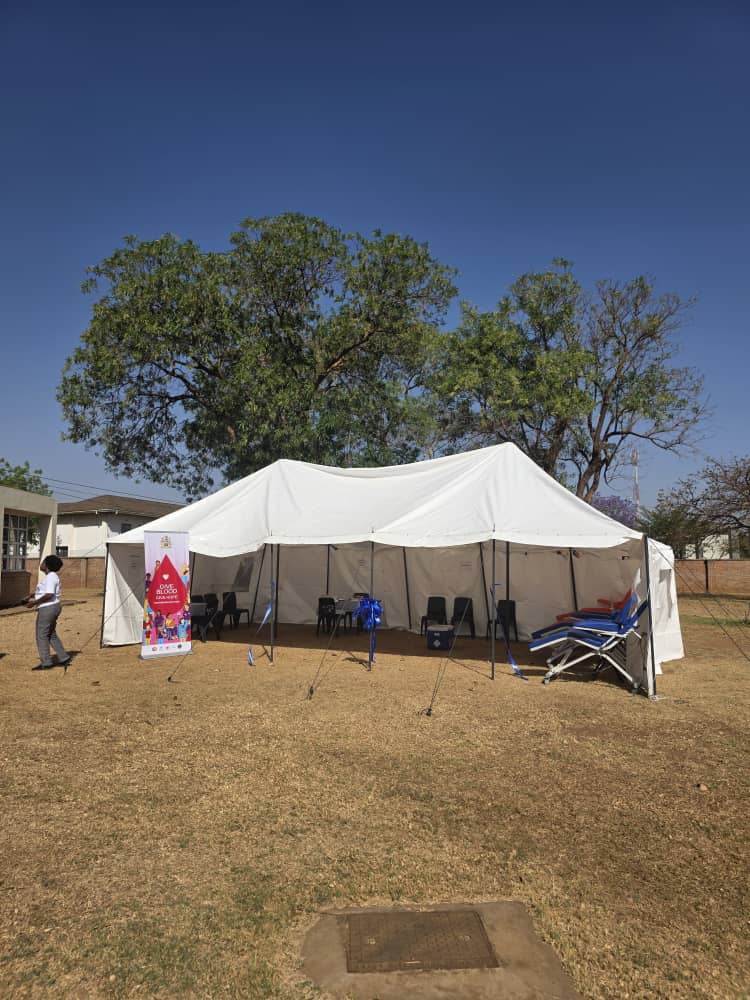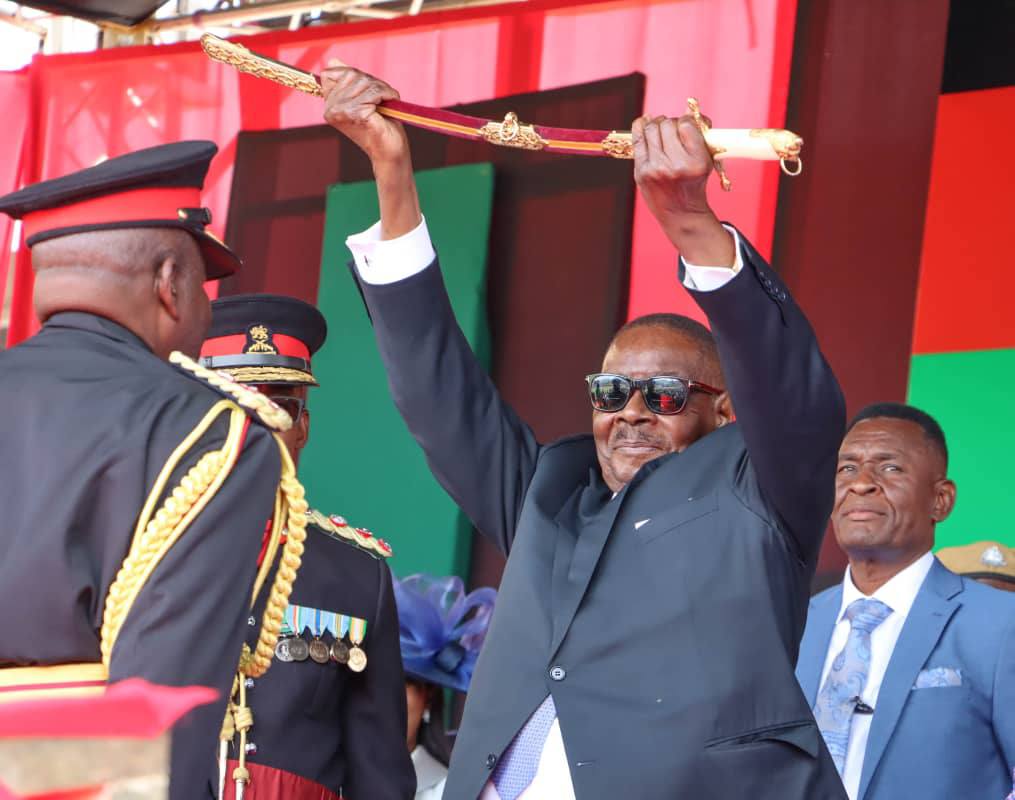Environment
Our capacities to cope from climate change impacts are very minimal-CISONECC
Civil Society Network on Climate Change (CISONECC) National Coordinator Julius Ng’oma has described the country’s capacity to cope from huge impacts of natural disasters and calamities as very minimal.
Among others, he cited poverty and poor economies leading to most communities unable to bounce back on their own and reliance on well-wishers in government to come to their rescue which has not been forthcoming as some of the reasons of the country’s failure to recover from impacts of climate change.
protected by reCAPTCHA
He observed that Malawi is still having programmes for Cyclone Idai which hit the country in 2019 together with other recovery programmes for Cyclone Gombe, Ana and most recently Freddy.
“All these are still processes that are still on-going, but the chances are that we’ll still take a lot of time as a country to recover from such kind of impacts because our capacities to cope are very minimal.
“We don’t have much of the financial resources to assist the communities, but also perhaps other governments that are supposed to do something about climate change are not doing enough for them to actually support a country like Malawi to recover from such kind of climate-related impacts.

“So we’ve been lamenting the fact that the Global North is not even providing enough resources to actually support communities like in Malawi to recover and even to manage any other climate related impacts.”
He acknowledged that adaptation or any climate related programmes related to recovery were supposed to be aligned to the protocols, agreements signed over the years and also to tap resources from funding arrangements under the United Nations Framework Convention on Climate Change (UNFCCC).
However according to Ng’oma, this has not been possible due to the financial procedures which have made it very difficult for Malawi to access the resources further arguing that despite putting up proposals, it’s very minimal.
“For any programmes that maybe you’ve actually worked so hard for you to actually present as a proposal, but they don’t come on a silver platter like that just to support any recovery programme even though the world is actually seeing that country A or Malawi has been hit by a Cyclone. We still need to beg for those resources which is not supposed to be the case.”
Environment
Energy sector stakeholders urge swift action to address Malawi’s growing energy crisis
With the country facing an energy crisis compounded by climate change and widespread reliance on unsustainable energy sources, key players in Malawi’s clean and renewable energy sector are calling for immediate and decisive action.
As the nation struggles with inadequate access to electricity, particularly in rural areas, energy sector stakeholders are advocating for the accelerated implementation of decentralized renewable energy solutions to ensure a sustainable and equitable energy future.
The players held a National Multi-Stakeholder Dialogue on Energy Access and Transition in Lilongwe which brought together representatives from the government, civil society organizations (CSOs), the private sector, and community groups.
protected by reCAPTCHA
The event focused on advancing Malawi’s energy transition by addressing the challenges of overreliance on hydropower, the impact of climate change, and the urgent need to provide affordable, clean energy to underserved communities.
In an interview with Nthanda Times, Julius Ng’oma, National Coordinator of CISONECC emphasized the need to move from conversation to concrete action.
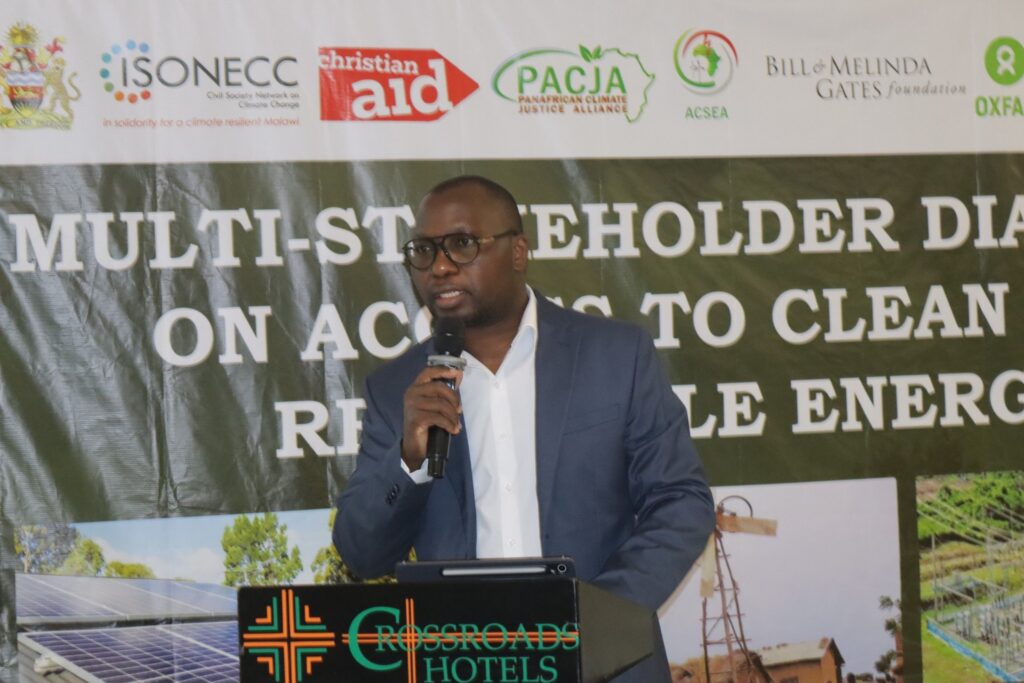
According to Ng’oma, there is a need for the country to start focusing on decentralised energy sources, saying at the moment Malawi’s energy landscape remains heavily dependent on hydropower, which constitutes the bulk of the country’s energy supply.
“The time for discussions and plans has passed. Now, we must prioritize implementation. Decentralized renewable energy systems, such as solar mini-grids and off-grid solar solutions, are the key to expanding electricity access to rural areas and addressing the energy needs of the most vulnerable communities,” said Ng’oma.
Ng’oma further stressed that the focus should not only be on increasing access to energy, but also on ensuring that energy systems are resilient enough to withstand the challenges posed by climate change. He pointed out that decentralized solutions are not just about providing electricity; they are also about preparing communities for future environmental shifts, making energy systems more sustainable in the long run.
As of 2023, only 25.9% of the population has access to electricity, and the majority of Malawians, particularly in rural regions, continue to rely on biomass for cooking, contributing to deforestation and environmental degradation.
In a separate interview, Thokozani Malunga, Deputy Director at the Ministry of Energy, emphasized the government’s commitment to increasing energy access, particularly in rural areas. However, he stressed that more needs to be done to speed up the transition.
“The national grid cannot reach every corner of the country in the near future. Decentralized energy systems offer a more immediate solution to providing reliable and clean energy to the people who need it most. We must focus on scaling up these renewable technologies to ensure they reach all Malawians, especially those in remote areas,” said Malunga.
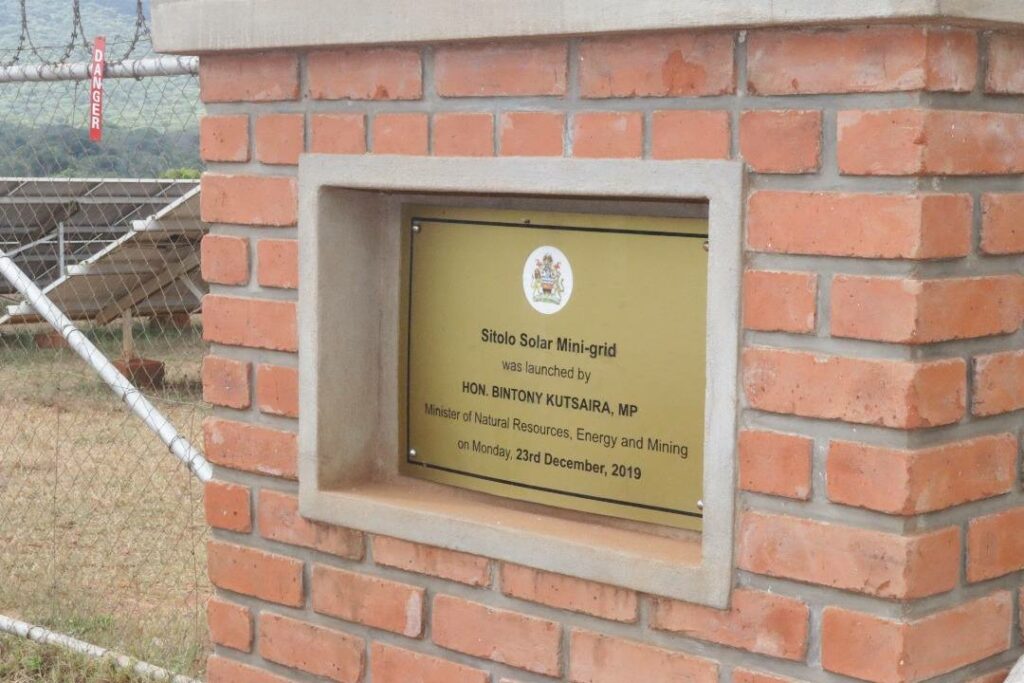
Despite the promising examples of success, stakeholders at the dialogue recognized the ongoing challenges, particularly in securing adequate financing for renewable energy projects.
Malunga highlighted the need for greater investment, both from the government and international partners, to overcome the affordability barrier that still prevents many rural communities from accessing clean energy solutions.
“Investment is crucial to make renewable energy affordable and accessible to all,” Malunga noted.
In a separate interview, Illari Aragon, Climate Justice Policy Lead at Christian Aid, reflected on a recent field visit to solar-powered communities, Sitolo Solar Mini grid in Mchinji, where the benefits of clean energy were evident.
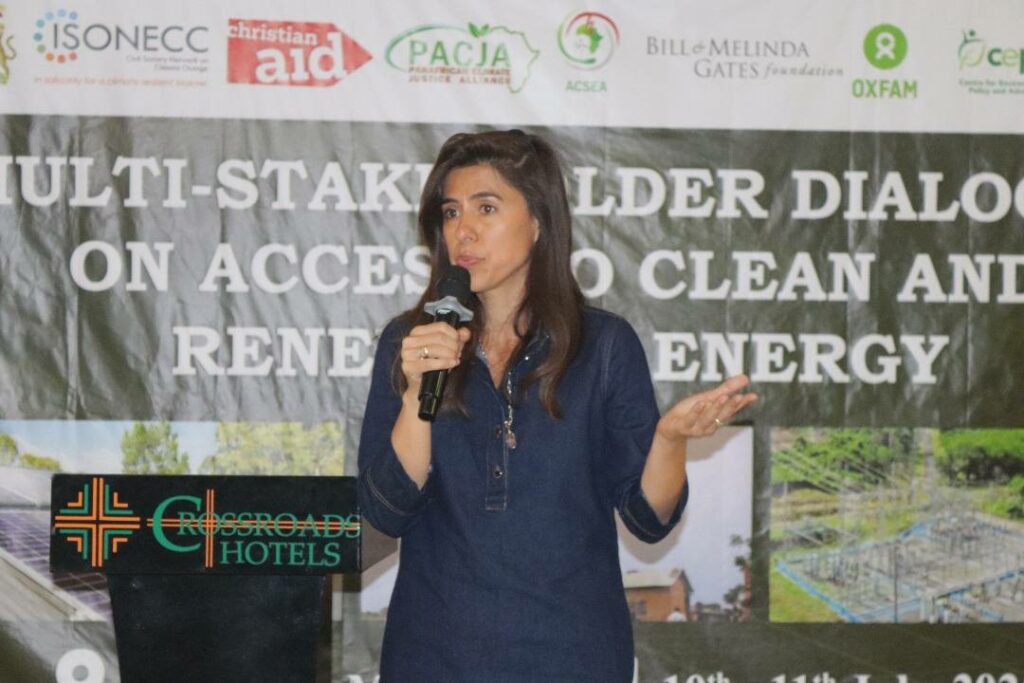
“It was inspiring to witness firsthand the impact of solar energy on communities. Not only are homes being powered, but businesses are thriving, children are studying after dark, and lives are being transformed. Renewable energy has the potential to completely change the trajectory of these communities, and it’s critical that we scale these solutions across the country,” she said.
Annie Chambukila, a successful businesswoman from Sitolo Village, has seen remarkable growth in her ventures since the introduction of solar-powered electricity in her community in 2019.
With the ability to keep her shop open until 9 PM, Annie has expanded her business of freezing and doughnut preparation, significantly increasing her income.
“Before the electricity, I was forced to close my shop early, but now I can stay open until 9 PM, preparing doughnuts and freezing, which has greatly boosted my business and helped me support my children’s education,” she said.
Through the solar power, she has been able to pay for her daughter’s education, now in her third year at Catholic University of Malawi, as well as for her other children’s school fees.
The example of the Sitolo Mini-grid demonstrates the transformative potential of renewable energy, providing clean, affordable, and reliable power to households and businesses.
Environment
Somisomi VDRMC saves over K3 million for climate change awareness
This proactive model not only aligns with Malawi’s Disaster Risk Management Act but also sets a benchmark for what community-led adaptation can look like.
Neno District Council has hailed Somisomi Village Disaster Risk Management Committee (VDRMC) at Traditional Authority (TA) Symon for its innovative approach, raising awareness on climate change and disaster preparedness.
Neno District Council Disaster Risk Management Officer, Brighton Mphinga, expressed gratitude over the VDRMC’s initiatives recently after the committee saved over K3 million within six months through its Village savings and Loans (VSL) to support initiatives in disaster management.
protected by reCAPTCHA
“This is the only committee among the 25 in Neno that has made such remarkable progress. Saving this amount in a short period means that in case of minor disasters affecting a few households, they will be able to assist them without waiting for external support,” Mphinga said.
He added that part of the cash generated from the committee’s farming activities would be reinvested to train more villagers in disaster preparedness and climate change adaptation in line with Malawi’s Disaster Risk Management Act.
The Act empowers communities with skills and knowledge for effective disaster management.
“We promote resilience by engaging communities to be proactive. The committee is undertaking initiatives such as VSL groups. The groups also raise chickens, which they will sell later to earn more income,” Mphinga explained.
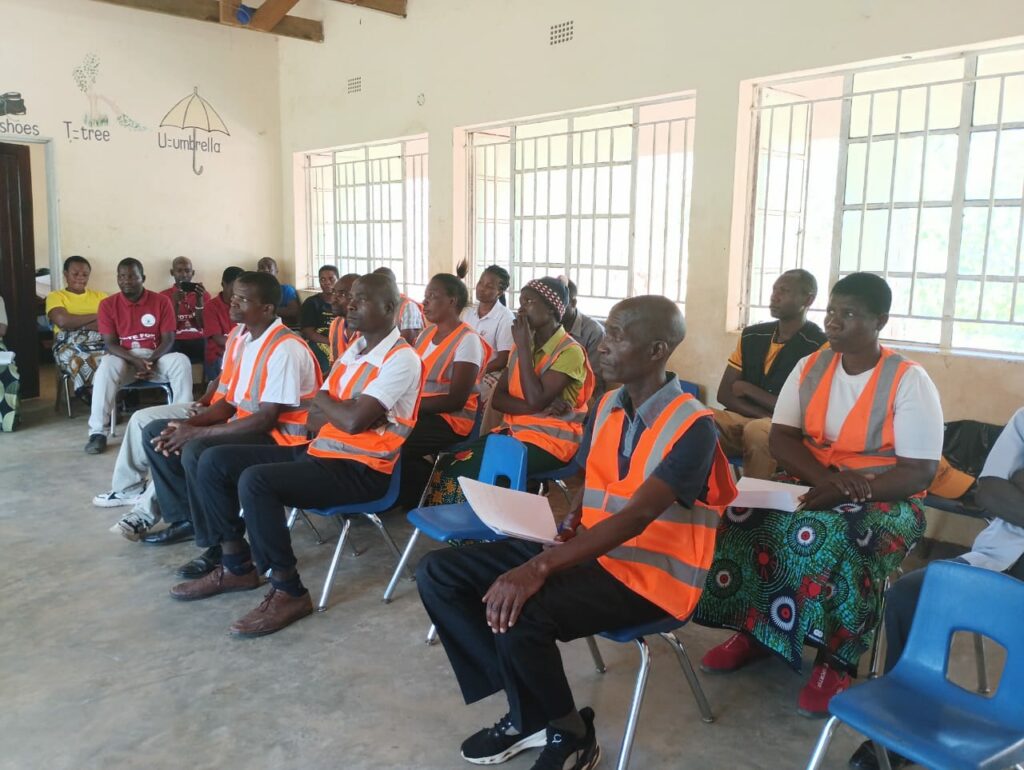
Somisomi VDRMC Chairperson, Billiat Dambule, said the committee aims at reaching more people with messages on disaster prevention and climate change adaptation.
He explained that the committee raise funds to empower villagers to start small-scale livestock farming, especially poultry, to generate income for emergency.
“Our vision is to ensure that communities are self-reliant as opposed to fully depending on government support during disasters,” Dambule said, urging other committees to be innovative for the benefit of their communities.
He said Samisoni VDRMC was active in data collection during cyclones and used some of the savings purchasing utensils for affected households, describing this as putting knowledge into action.
Group Village Head Manyenje applauded Somisomi VDRMC for being innovative and for being prudent on resources.
“Previously, we did not have such organisations; we struggled waiting for external support. Other groups should learn from their example,” he said.
District Community Development Officer for Neno, Rabton Dyeratu, reminded people on the role of VSL groups, saying the groups are there for economic empowerment.
He applauded the committee for putting knowledge and skills into practice.
“It is always good to be self-reliant. If you saved over K3 million in six months, you could reach K6 or K7 or even K10 million in a year” he added.
Environment
Minister calls for scaling up youth led ecosystem restoration
Minister of Natural Resources and Climate Change Dr Owen Chomanika, has called for the mainstreaming and upscaling of youth led ecosystem restoration programmes as a strategy for climate adaptation, job creation, and green economic transformation.
Minister of Natural Resources and Climate Change Dr Owen Chomanika, has called for the mainstreaming and upscaling of youth led ecosystem restoration programmes as a strategy for climate adaptation, job creation, and green economic transformation.
The minister made the remarks on Wednesday in Lilongwe during the Malawi Green Corps.
protected by reCAPTCHA
The workshop, convened by the government with support from the United Nations Development Programme (UNDP) and Catholic Relief Services (CRS) brought together stakeholders to assess the progress and impact of the Malawi Green Corps initiative.
Chomanika said, “This programme is a catalytic model for achieving climate resilience and environmental sustainability as It speaks directly to Enabler seven of Malawi Vision 2063 by integrating green growth and youth empowerment into national development planning.”
Launched in 2022 by President Lazarus Chakwera, the Malawi Green Corps aims to restore over 5,000 hectares of degraded landscapes across the country.
It engages youth in nature-based solutions, integrated land use management, and waste repurposing, while building their skills in circular economy models.
According to Dr Chomanika, more than 2,000 young people from 10 districts have so far participated in the restoration of ecologically sensitive areas, contributing to the reversal of Malawi’s estimated two percent annual loss of forest cover.
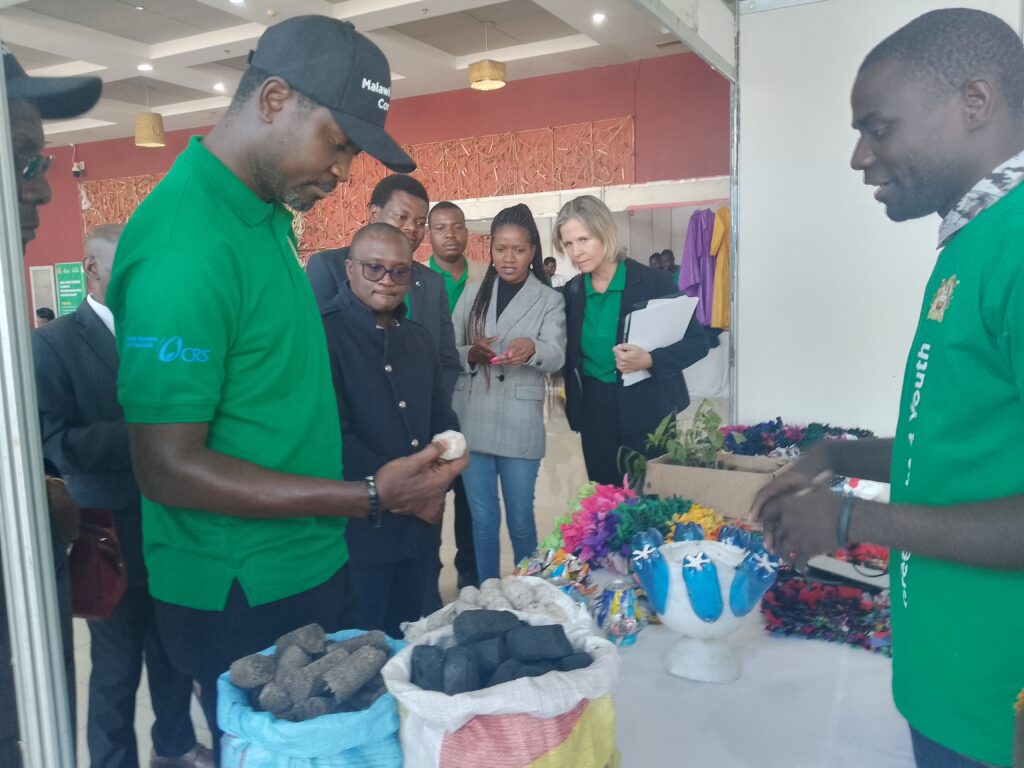
Chomanika added, “I salute the young eco-champions whose hands-on efforts in restoration hotspots are not only mitigating environmental degradation but are a strategic investment in our natural capital.”
CRS Technical Advisor for Land Restoration, Baxton Chirombo, said the project offers dual benefits by addressing ecological fragility and youth unemployment.
Chirombo said, “This project is a game changer. By targeting degraded ecosystems and simultaneously creating pathways for green entrepreneurship we are tackling both climate shocks and socio-economic vulnerability head on.”
UNDP Resident Representative, Fenella Frost, stressed the importance of youth led local climate solutions in achieving the targets of the UN Decade on Ecosystem Restoration (2021–2030).
“Young people are the frontline actors in climate mitigation and adaptation and as UNDP, we are proud to co-finance scalable home-grown solutions like the Malawi Green Corps,” said Frost.
During the workshop, Dedza, Ntcheu, Salima, and Karonga districts were recognised for their progress in ecological restoration.
In Dedza alone, 229 youth successfully regenerated 570 hectares of forestland.
The Malawi Green Corps initiative is viewed as a model for inclusive environmental stewardship, aiming to strengthen climate resilience while generating green jobs for young people in both rural and peri-urban settings.
Stakeholders at the workshop called for increased investment policy support and intersectoral collaboration to ensure the sustainability and expansion of the programme nationwide.

